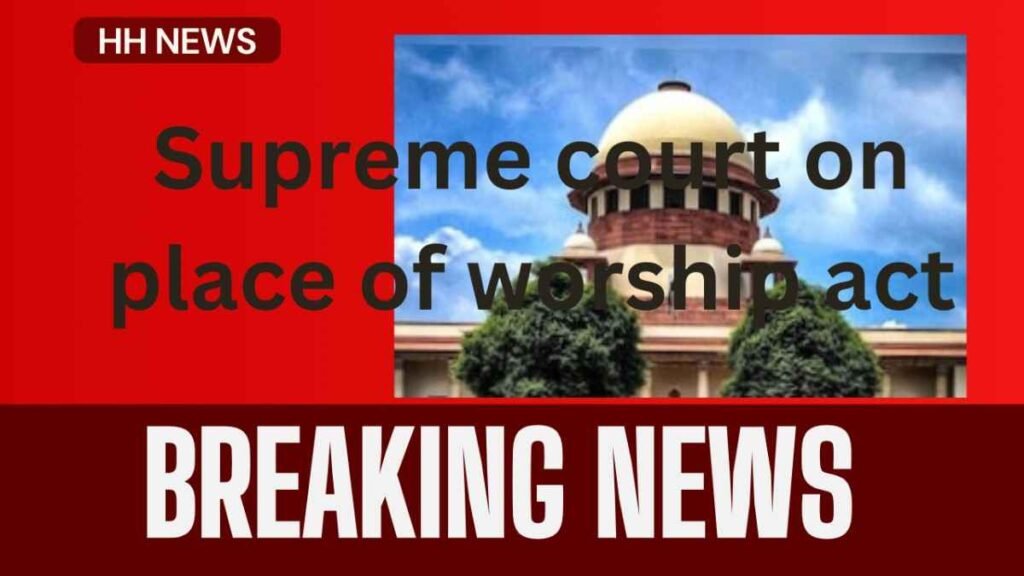
The Supreme Court of India recently made headlines for delaying hearings on petitions challenging the Places of Worship Act, 1991. The court has postponed the case to the first week of April. as it focuses on other urgent matters. This decision comes after the court rejected fresh petitions seeking changes to the law. calling them impossible to deal with.
What Is the Places of Worship Act 1991?
The Places of Worship Act is a law passed in 1991 to protect the religious identity of places of worship as it existed on August 15 1947. The goal was to prevent disputes over religious sites by freezing their status. The only exception was the Ayodhya Ram Temple and Babri Masjid case. which was already in court at the time.
Why Did the Supreme Court Delay the Hearing?
According to Hindustan times the Supreme Court postponed the hearing because it is currently handling other priority cases. The court emphasized that the Places of Worship Act case requires detailed discussions. which will now happen in April.
This delay keeps the law intact for now. meaning no changes can be made to the religious character of any place of worship until the court final decision.
Why Did the Court Reject New Petitions?
In January 2024, the Supreme Court dismissed several fresh petitions asking for a review of the Act. As reported by Moneycontrol, the judges stated that reopening old disputes could create “new conflicts” in society. They stressed that the 1991 law was designed to promote peace and harmony and altering it could lead to chaos.
The court also noted that the Act is constitutionality is already under challenge in other pending cases. making new petitions unnecessary.
Why Is This Law Important?
The Places of Worship Act is seen as a shield against communal tensions. By locking the status of religious sites to their 1947 state, the law aims to.
- Prevent legal battles over temples, mosques or churches.
- Promote unity by respecting history.
- Avoid politicization of religious spaces.
However, some groups argue the law ignores historical injustices and restricts their right to reclaim sites.

What Are People Saying?
- Legal Experts. Many support the court stand. saying reopening old issues could harm India social fabric.
- Petitioners. Groups like Hindu devotees and Muslim organizations have mixed reactions. Some want changes. while others back the law.
- Government. The central government has previously defended the Act, calling it “vital for secularism.”
What Happens Next?
All eyes are on the Supreme Court April hearing. Its decision could either reinforce the law or open doors for new debates. For now, the message is clear: the court wants to avoid reviving historical disputes that could divide communities.
Final Thoughts
The Supreme Court delay and rejection of new petitions highlight its cautious approach to the Places of Worship Act. By prioritizing national harmony over legal battles. the court aims to balance India diverse religious sentiments. As the April hearing approaches. the nation waits to see how this critical law will shape India’s future.`




